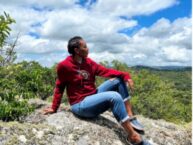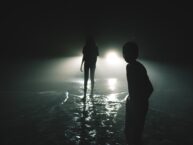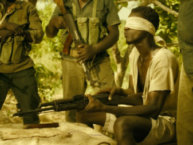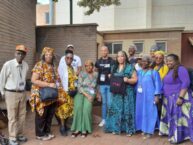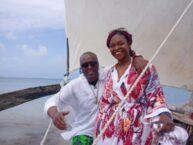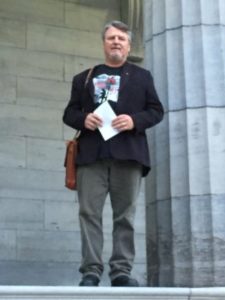 Chad Norman’s poems have appeared for the past 35 years in literary publications across Canada, as well as a number of other countries around the world.
Chad Norman’s poems have appeared for the past 35 years in literary publications across Canada, as well as a number of other countries around the world.
He hosts and organizes RiverWords: Poetry & Music Festival each year in Truro, NS., held at Riverfront Park , the 2nd Saturday of each July.
In October 2016 he was invited by the Nordic Assn. for Canadian Studies to give talks on Canadian Poetry and read from his books at Borupgaard Gym in Copenhagen, and Risskov Gym in Aarhus, as well as other readings in both cities and Malmo, Sweden. Because of that tour Norman has started the manuscript, Counting Coins in Denmark and Sweden.
His most recent books are Selected & New Poems, from Mosaic Press, and Waking Up On The Wrong Side of The Sky, from Grant Block Press, and a new book, Squall:Poems In The Voice Of Mary Shelley, is due out Spring 2020, from Guernica Editions. Presently, he is also working on another manuscript, The Black Rum Poems.
He has done readings at various Eastern Canada venues in Kingston, Ottawa, and Montreal. And in the Fall of 2018 Norman will undertake a speaking/reading tour of Scotland, Ireland, and Wales, as a celebration of literacy and Canadian Poetry.
His love of walks is endless.
Four Poems from Squall: Poems in the Voice of Mary Shelley
ELENA, 1820
NO OTHER HEAVEN, 1812
Mary turning her back to the sea;
a small sealed box balanced on her palm:
Thinking,
apt endless venture,
curse or courage?
We were young before we met.
Before, as his early thoughts
asked about the Age,
about discrepancy,
that between the will to do good
& the power of doing so—
an Atheist’s theory.
We were of no age
outside of a number.
Outside,
sitting apart,
under the sky’s options,
a number of stars
to lead one to God,
or beyond
to Mab,
his hated fairy,
the queen he let reign.
“Doing good” never a strange notion,
within his reach,
closer to the hand,
he thought was possible,
when he advocated
increasing the human power,
men’s knowledge, then
there is no absolute need for Heaven,
or an afterlife.
He thought about us doing good.
How unlike my planted mind.
There is no other Heaven.
I say this knowing joy,
knowing I say words in favour of
that which is beyond the mind,
the men, their hands
waiting in the poor depths of pockets,
or held shut
by the inescapable sense of
a trusted prayer.
I gaze at the edge of Italy,
unable to forget
we shared all
we dared to,
the effort holy,
enough.
THE CHOICE REVISITED, 1814
AFTER READING THE 3RD CANTO OF BYRON’S Childe Harold, 1817
